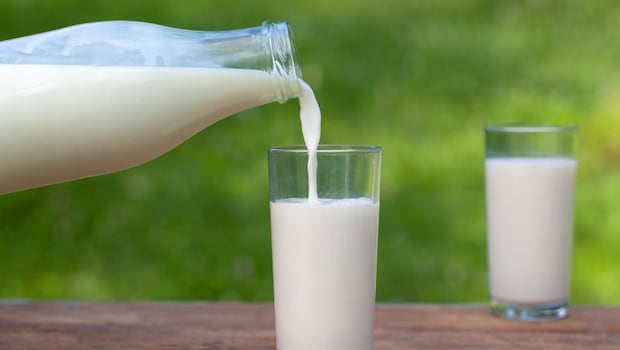Each year on June 1, people around the world celebrate World Milk Day, a global initiative established by the Food and Agriculture Organization (FAO) of the United Nations to highlight the importance of milk in our daily diets and honour the contributions of the dairy sector to nutrition, livelihoods, and food security. India, as the world's largest milk producer, plays a vital role in this celebration. While most of us are familiar with the basic health benefits of milk- strong bones, good calcium content, and rich protein levels- there are many untold and lesser-known advantages that deserve attention.
Milk: More Than Just a Calcium Booster
Milk is a widely consumed superfood in Indian households. While buffalo milk is most commonly used, other types like cow, goat, and even camel milk are also part of many diets. Beyond drinking it plain, people enjoy milk in forms like curd, paneer, cheese, butter, flavoured milk, and ice cream.
But did you know that milk's benefits go far beyond what meets the eye?
Let's uncover five untold benefits of milk you may not know about, supported by expert insights from Rupali Datta, Consultant Nutritionist.
Also Read: Should You Boil Milk Before Drinking It?

Milk is full of various nutrients.
Lesser-Known Benefits Of Milk
1. Natural Stress Reliever and Sleep Booster
According to Dr. Rupali Datta, milk contains Tryptophan, an essential amino acid that promotes the production of melatonin, the sleep-regulating hormone. This helps improve sleep cycles, reduce fatigue, and keep us mentally and physically refreshed. "Milk not only helps us relax but also boosts serotonin levels, which improve mood and help reduce stress," she explains.
2. Supports Digestive Health and Reduces Acidity
Drinking a glass of cold milk can help neutralise stomach acid and is an effective home remedy for acidity. It soothes the stomach lining and prevents discomfort after spicy meals. Those who aren't sensitive to cold can even enjoy a scoop of ice cream for similar relief.
Also Read: What Is The Best Time To Drink Milk According To Ayurveda?
3. Hydrating and Nourishing
Though it feels rich and creamy, milk is actually mostly water. The creamy texture comes from its combination of proteins, fats, vitamins, and carbohydrates. This makes milk both nourishing and hydrating, especially beneficial during warmer months or for those with increased fluid needs.
4. Aiding Fat Loss with Conjugated Linoleic Acid (CLA)
Milk and other dairy products contain Conjugated Linoleic Acid (CLA), a naturally occurring fatty acid that may help reduce body fat and support lean muscle development. Some studies suggest that CLA can also aid in improving metabolic function when combined with regular exercise.
5. A Versatile Health Food
If you're lactose-intolerant or exploring plant-based diets, soya milk offers a worthy alternative. Fortified soya milk contains fewer calories, less sugar, and lower saturated fat compared to traditional cow milk, making it ideal for those monitoring their weight or heart health. You can even boost nutrition by mixing soya powder into regular milk for added protein and fibre.
How Much Milk is Enough?
Rupali Datta recommends 500-600 ml of milk per day for an average adult. This amount helps meet daily calcium and protein needs, supports gut health, and reduces the risk of gastric issues.
On this World Milk Day 2025, let's go beyond the basics and appreciate milk for its many hidden benefits. Whether you prefer it warm or cold, in your tea or as curd, milk continues to be a time-tested elixir of health. Its versatility and nutrient profile make it a daily dietary must-have, no matter your age or lifestyle.
So raise a glass to milk today- and every day!
About Neha GroverLove for reading roused her writing instincts. Neha is guilty of having a deep-set fixation with anything caffeinated. When she is not pouring out her nest of thoughts onto the screen, you can see her reading while sipping on coffee.








